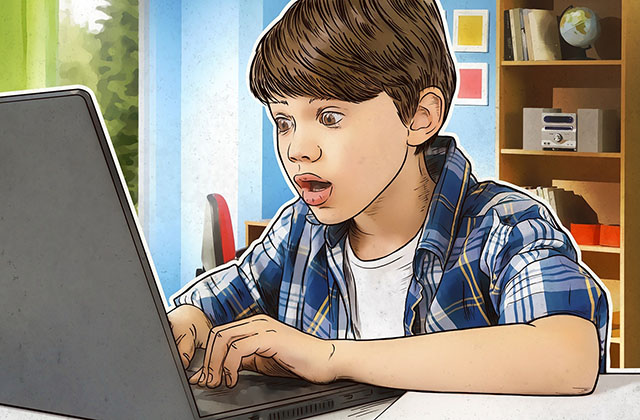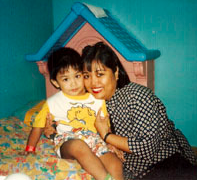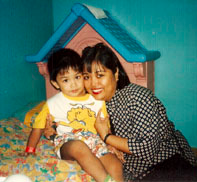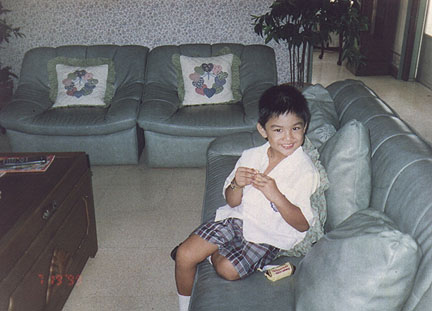Kaspersky Lab’s latest report on the online activities of children – based on statistics received from its solutions and modules with child protection features – highlights children’s online activities and the importance of protecting them when online. The top three most googled items by kids worldwide are video, text translation and communication
I have never tried Kapersky but I am intrigued with their latest report on online activities of children. Twenty year ago, there were not many websites so it was easy to track the online activities of my children. With so much multimedia today , it is impossible to monitor all the sites. There are many security solutions like McAfee, Symantec Norton, Bitdefender , Kapersky and Avast . I personally use Avast but you can also check this Kaspersky report before trying it out.

The report shows anonymized statistics from Kaspersky Lab’s flagship consumer solutions for Windows PCs and Macs that have the Parental Control module switched on and from Kaspersky Safe Kids, a standalone service for Windows, Mac, iOS and Android devices.
For example, the report presents search results on the ten most-popular languages* for the last 6 months. The data shows that the video & audio category – including requests related to any video content, streaming services, video bloggers, series and movies – are the most regularly ‘googled’ by children (17% of the total requests). The second and third places go to translation (14%) and communication (10%) websites respectively. Interestingly, games websites sit in fourth place, generating only 9% of the total search requests.
We can also see a clear language difference for search requests: for example, video and music websites are typically searched for in English, which can be explained by the fact that the majority of movies, TV series and musical groups have English names.
Spanish-speaking kids carry out more requests for translation sites, while communication services are mostly searched for in Russian. More than any other nationality, Chinese-speaking children look for education services, while French-speaking kids are more interested in sport and games websites. In turn, German-speaking requests dominate in the “shopping” category. The leading number of search requests for porn are in Arabic, and for anime are in Japanese.
“Kids in different countries have different interests and online behaviors, but what links them all is their need to be protected online from potentially harmful content. Children looking for animated content could accidentally open a porn video. Or they could start searching for innocent videos and unintentionally end up on websites containing violent content, both of which could have a long-term impact on their impressionable and vulnerable minds,” says Anna Larkina, Web-content Analysis Expert at Kaspersky Lab.
As well as analyzing searches, the report also looks into which websites children visit or attempt to visit that contain potentially harmful content which falls under one of the 14 preset categories** for the last 12 months.
The data shows that communication sites (such as social media, messengers, or emails) were the most popular pages visited by computers with parental controls switched on – with users visiting these sites in 60% of cases over the previous 12 months. However, the percentage for this category is dropping every year as mobile devices continue to play a bigger role in children’s online activities.
The second most popular category of websites visited by these users is “software, audio, and video” (22%). Websites with this content have become significantly more popular since last year, when it was only the fifth most popular category at 6%. The top three is rounded off by alcohol, tobacco, and websites about narcotics (6%), which is a new addition compared to this time last year.
The mobile trend is again highlighted in the figures for gaming websites, which are now only in fourth place on the list at 5%. As kids continue to show a preference for mobile games rather than computer games, this category will only continue to decrease in popularity on computers over the coming months and years.
“No matter what they are doing online, it is important for parents not to leave their children’s digital activities unattended, because there’s a big difference between care and obtrusiveness. While it is important to trust your children and educate them about how to behave safely online, even your good advice cannot protect them from something unexpectedly showing up on the screen. That’s why advanced security solutions are key to ensuring children have positive online experiences, rather than harmful ones”, adds Anna Larkina.
The Kaspersky Total Security and Kaspersky Internet Security consumer solutions include a Parental Control module to help adults protect their children against online threats and block sites or apps containing inappropriate content. In turn, the Kaspersky Safe Kids solution allows parents to monitor what their children do, see or search for online across all devices, including mobile devices, and offers useful advice on how to help children behave safely online.
Check out the whole report, at https://securelist.com/kids-
* These languages in Kaspersky Safe Kids are: English, German, Russian, Portuguese, Arabic, Japanese, Chinese, French, Italian, Spanish. Search engines include different categorizations, covering: Pornography, eroticism; Abortion; Religious movements and sects; Weapons; Drugs; Alcohol; Tobacco; Violence; Extremism, racism; Self-harm, suicide and Gambling.
** The 14 categories of websites that can be blocked by the Parental Control module in Kaspersky Lab’s solutions are: Adult content; Alcohol, tobacco, narcotics; Computer games; E-commerce; Explicit language; Gambling, lotteries, sweepstakes; HTTP query redirection; Internet communication media; Job searches; News media; Religions, religious associations; Software, audio, video; Violence and Weapons, explosives, pyrotechnic.





